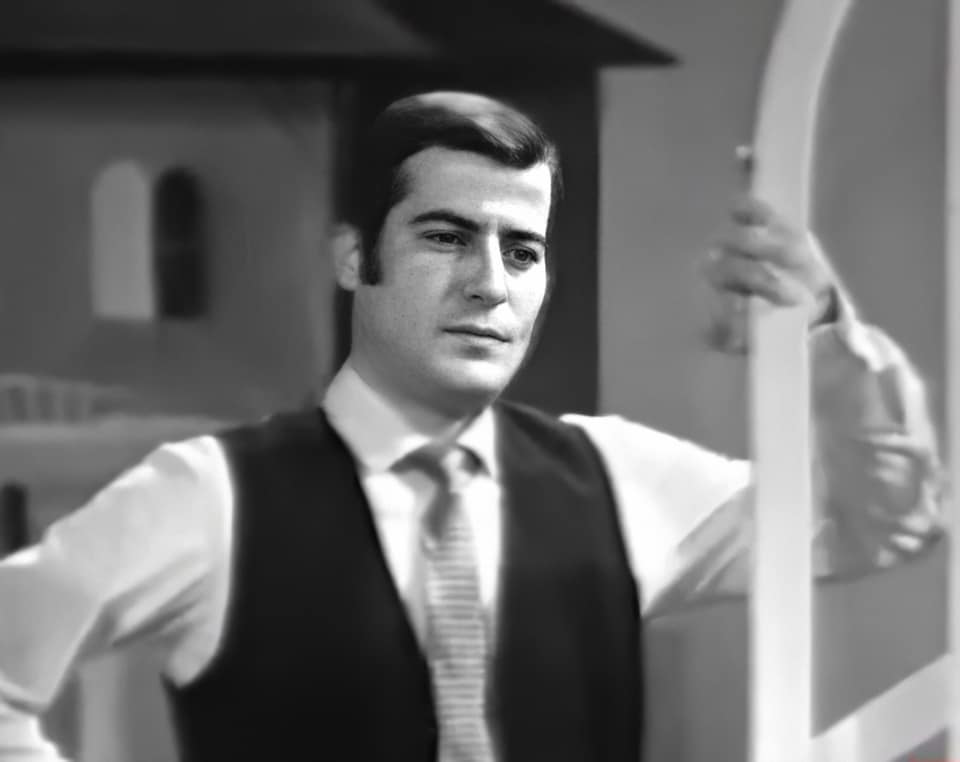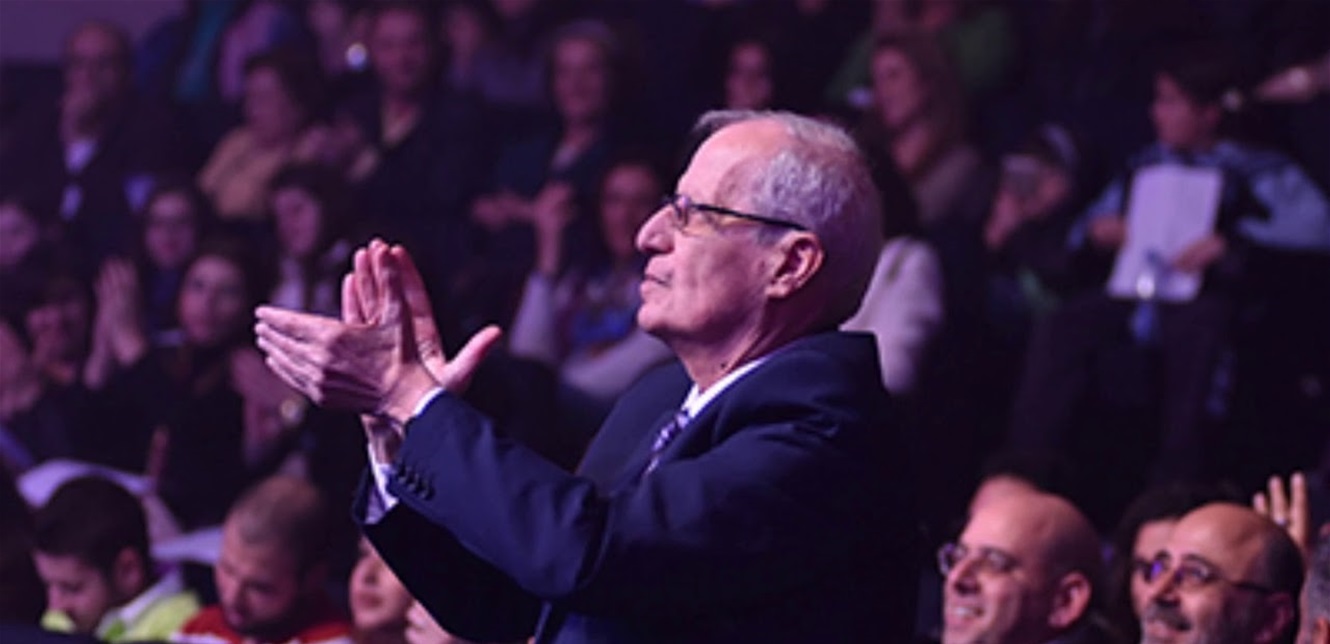Elie Soueiri, the artist who died last Wednesday evening at the age of 84, completed about 1,500 songs between composing and writing. A popular movie directed by Yusuf Sahine. In this context, journalist Saeed Freiha, founder of Dar al-Sayyad, described him as “an icon in the Rahbana Temple”. Al-Shuwayri also appeared in other plays, including Antoine Kandoor’s “Taya Taiya”, composing the melodies of his songs.
Elie Soueiri experienced three generations with male and female singers in the sixties, seventies and eighties. He composed for Fahad Balan, Wadad, Shathiya and Jacqueline, as well as Huda Haddad, the great sister of singer Fairuz. For Georgette Sayek, Salwa Al-Katharib, Tony Hanna, Joseph Azhar, Majida Al-Roumi, Najwa Karam, Rakeb Alama, Madonna and Sabar Al-Rubai. His songs, which he composed and wrote lyrics on several occasions, were well received by Lebanese and Arab audiences and left a unique “stamp” on the new world of rapture. A master at singing with patriotism and passion, Souiri delivered dozens of patriotic songs or slogans that spread across the foreheads of Lebanon and grew in the hearts of his children. Their position in days of war and peace, “I write your name, my nation” and “Sif al-Azgar” and “Come and live, O home” and “O people of the earth”… the last of which was in 2013 for the martyrs of the Lebanese army “For meeting you” “I’m Proud of Cedar” song. In this regard, Souveri appears as one of the creators of Lebanese song that emerged outside the schools founded by Rahbani women. Assi, Mansour, Zaki Nassif and Romeo Lahoud, Tawfiq Al-Basha, Philemon Wehbe, Melhem Barakat, Issam Raji, Azhar Habib et al.
Beirut’s golden age
Born in Beirut in 1939, Elie Souyeri prided himself on being born into the golden age of art. Incidentally, his real breakthrough in the world of music and singing came in 1960 on the corridors of Kuwait Radio, when a friend invited him to Kuwait when he was twenty years old. Coincidence brought him together with the late Kuwaiti composer Awad al-Dawqi, who encouraged him to learn to play the ode, and with a colleague, the blind Egyptian composer Morsi al-Hariri.
In mid-1962, the Lebanese “Al-Anwar” group arrived in Kuwait as part of an artistic tour. After attending the band’s show, Eli was struck with nostalgia, with a letter from a friend in Kuwait asking Joseph Shama, a Lebanese musician living in Lebanon, to support Eli’s talent. He became a member of the choir along with Eli Joseph Shama and Nicola El Teague. He has been in groups with many artists including Fahad Balan and Nosha Younes.
Baalbek and Rahabna
In 1963, Souvery learned that behind-the-scenes arrangements were being made to revive the Balbec festival, under the supervision of musician Romeo Lahoud. So he went to his office and promised to give him a small role in the play “Waterfall”… Meanwhile, brothers Asi and Mansoor Al-Rahbani were looking for new artistic faces, so they were impressed by Eli’s performance. The stage, through which he began his journey with true art. Al-Shuwayri participated with al-Rahbana in several theatrical productions, including “Baya al-Qawatim”, which was adapted into a film directed by Yusuf Sahine, “The Person”, “Faqr al-Din”, “The Night and the Lamb” ”, “Sa al- Num”, “The Wheels of the Air” and “Mas al-Reem”. At Rahbani Theatre, Al-Shuwayri sang and acted funny roles like “Rajih”, “Fadlo”, “Tiq al-May”, “Shahwan”, “Eid” and others.
read more
This section contains related articles, which are placed (in the Related Nodes field).
Elie Souiri was not content to stand next to the elders, so he unleashed his creativity, so he wrote “My Country” and “You and I, Ya Lail” from his poems and melodies, sung by Wadih Al-Safi. Thala Wa Thamar Ya Dar”, became a huge hit.
The greatest stars of the art, including Talitha Rahma, sang for Soueiri, for whom he wrote the play “Qawush al-Afra” and for whom he sang “Ya Balah Jagloli” that changed on every lip and tongue. Likewise, Magda al-Rumi sang “The Mask Fallen”, “Who else but you” and “Al-Umar is still a thief” for him, and Saba and Samira Tawfiq competed to sing “Ayyam al-Lulu”. ”, which caused a storm in the singing world at the time.
Art is solitude
Since the death of his wife seven years ago and the fact that he underwent open-heart surgery several years ago, Chawri’s illness has doubled. Souiri’s self-esteem and refusal to sing in restaurants prevented him from amassing financial wealth like his peers, to the point where he could not build his own house.
In the last years of his career, he devoted himself to performing religious hymns and prayers and did not bother to follow the trend of the art scene.
When former Lebanese President Michel Aoun presented him with the National Cedar Medal for Commander-in-Chief in 2017, praising his artistic, social and patriotic contributions, Souveri said, “Today the Cedar Medal is a feast for all the songs I have sung. .”

“Coffee evangelist. Alcohol fanatic. Hardcore creator. Infuriatingly humble zombie ninja. Writer. Introvert. Music fanatic.”


